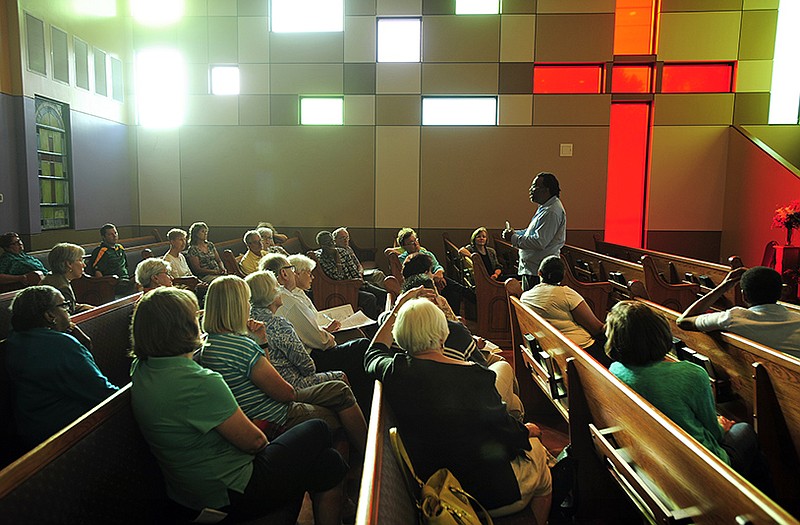Committed to a year-long conversation on race relations, a Jefferson City group of residents spent Monday night discussing how they see biases in their lives and how they can move to action to get rid of them.
Faith Voices met at Quinn Chapel AME Church on Lafayette Street after an emotional Sunday service took place.
Community members organized to support the congregation after a white man went into an AME church in Charleston, South Carolina, and fatally shot nine church members in a prayer meeting last week.
Quinn Pastor Cassandra Gould told the gathering on Monday night that while it was hard to get in the pulpit Sunday, they were leaning on their faith and appreciated the outpouring of support they've received.
University of Missouri Professor Carl Kenney, pastor of Bethel Baptist Church in Columbia, led a discussion on unconscious or implicit biases. These would be habits made from some type of experiences in a person's life.
"In other words, they just happen," he said. "These are going on in every facet of our society now and they are leaving a vast amount of people in the dark."
Kenney said various forms of privilege - such as white, male, class and religion - can marginalize society, leading people to assume things are right when in fact they are not.
This includes thinking blacks are more likely to commit crimes, which Kenny said may not be a conscious behavior, but it shows up in ways that are harmful.
"A stereotype would be holding something over an entire race of people," he said, "but a bias is unconscious thinking that leads to a decision being made.
"An example of that would be the assumption that some have that because a person is Asian they must be inherently intelligent. A lot of whites believe that we've moved to a post-racial society. They can't believe racism exists anymore when, in fact, it does."
Pastor Heather Morgan from New Horizons United Methodist Church in Columbia gave the group a white privilege checklist to see what examples of privileges they have seen in their lives because they are white. The examples included being able to arrange to be in the company of people of your own race most of the time, and when being told about the nation's heritage being shown that people of your color made it what it is.
"I grew up in a part of Chicago with privilege and when we went to the south side of town, we locked our car doors and held our purses tighter just because of where we were and who was there," she said. "Over the past decade I've been working on how we can move past racial biases and it has been such a powerful spiritual trip for me."

